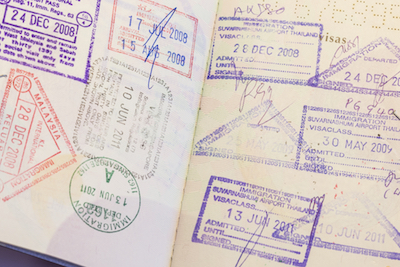Immigration to Canada From Your Country
Whether you’re looking for information about immigration to Canada from India or Pakistan or from Germany or Italy, the rules don’t change. Regardless of your citizenship, you must meet the same requirements to be able to immigrate to Canada.
The laws governing who may immigrate to Canada are the same for applicants hoping to immigrate from Russia, Nigeria, India, China, England, Scotland, Ireland, the United States of America, and all other countries, despite that the United Kingdom is made up of Commonwealth countries. Citizens of those countries have no privileges regarding immigration to Canada, nor do citizens of the United States of America, despite their close proximity to Canada. All applicants, no matter where you’re from, must meet the same standards.
Some documents required to enter Canada may vary for certain countries. For example, travelers from certain countries require a visa to enter Canada, while others do not require a visa but may require an electronic travel authorization (eTA) if they are arriving by plane. An American citizen requires a valid American passport or other proper identification to enter Canada. To stay in Canada long term, however, all applicants have to meet the same standards regardless of nationality.
English Language Requirements When Emigrating to Canada
Regardless of an applicant’s first language or the official language(s) of their country, they will still be required to take the language test; even those whose first language is English, such as applicants from England, Scotland, and Ireland. And individuals for whom French is a first language (such as applicants from France) must also prove their proficiency in English and/or French by taking an Immigration-approved language test and scoring a minimum Canadian Language Benchmark (CLB) of 7 in all testing areas: speaking, listening, writing, and reading. While this may seem inconvenient to some native English and French speakers, it is the only way that Immigration can be sure that they are holding all applicants to the same language standards. This requirement reflects Canada’s commitment to diversity.
Immigration Programs Across Canada
While immigration applicants from Germany to Pakistan to Nepal must meet the same requirements to be eligible to immigrate to Canada, requirements can differ depending on where you want to immigrate to within Canada. For example, Quebec often has different rules for immigration than the rest of the country. There are also extra opportunities in some places, such as the Atlantic Immigration Pilot, which allows employers in the Atlantic provinces to hire foreign workers if they can show that they can’t fill the need using Canadian candidates. Employers do not require Labour Market Impact Assessment (LMIAs) for this program, though the province in which the candidate will be working must endorse the job offer. If the job offer is endorsed, the candidate can apply for permanent residence. There are also Provincial Nominee programs, each with their own requirements, that candidates can apply through for Express Entry.
Immigrating to Canada through your Career
Immigration to Canada for chefs, doctors, nurses, engineers, lawyers, or teachers – it’s all the same. You can immigrate to Canada through your profession – and the profession doesn’t matter – but you will need to meet all other selection factors in order to qualify for immigration to Canada. Some of these factors include age, education, language skills in English and/or French, a valid job offer (might be helpful, if you lack points) and adaptability — but these are the same regardless of your profession.
With Canada’s aging large baby-boomers population, the demand for family doctors continues to rise, as per the Canadian Occupational Projection System (COPS), 2013 – 2022. Assisting Occupations in Support of Health Services and Professional Occupations in Health are projected to grow above 1.1%.
Medical occupations with the strongest employment growth between 2013-2022
| Occupations | Growth rate 2013-2022 |
| Specialist Physicians | 2.80% |
| General Practitioners and Family Physicians | 2.80% |
| Head Nurses and Supervisors | 2.32% |
| Other Technical Occupations in Therapy and Assessment | 2.11% |
| Physiotherapists | 1.99% |
As per the COPS, it is projected that there will be 142,600 job openings for Registered Nurses between 2013-2022.
Upon immigration to Canada, doctors, nurses, and engineers, or any other licensed professionals will need to obtain a license of the province in which they wish to practice; lawyers will need to pass the bar exam. Every province has its own licensing process, and in preparation of your immigration to Canada, it might be wise to contact the licensing body and start preparing for the exams even prior to the arrival to Canada.
If you meet the requirements for immigration to Canada, your application may be processed under the Federal Skilled Worker program, Canada Experience Class, or the Provincial Nominee program under the Express Entry management system.
Excellent English/French is of utmost importance, as it will help you pass the qualification exams and, in turn, to enter the Canadian labour market and start working in your profession. Immigration to Canada as a chef, doctor, nurse, engineer, lawyer, or teacher is possible, if you meet all the selection factors.
Starting Your Canadian Immigration Journey
Ultimately, citizens of all countries are equal before Canadian immigration law. Wherever you are coming from, we can help you determine the best course of action and improve your chances of success. To begin the process, contact us at 647 342 7301, via email at info@milmantasimmigration, or complete our Canadian immigration questionnaire.
